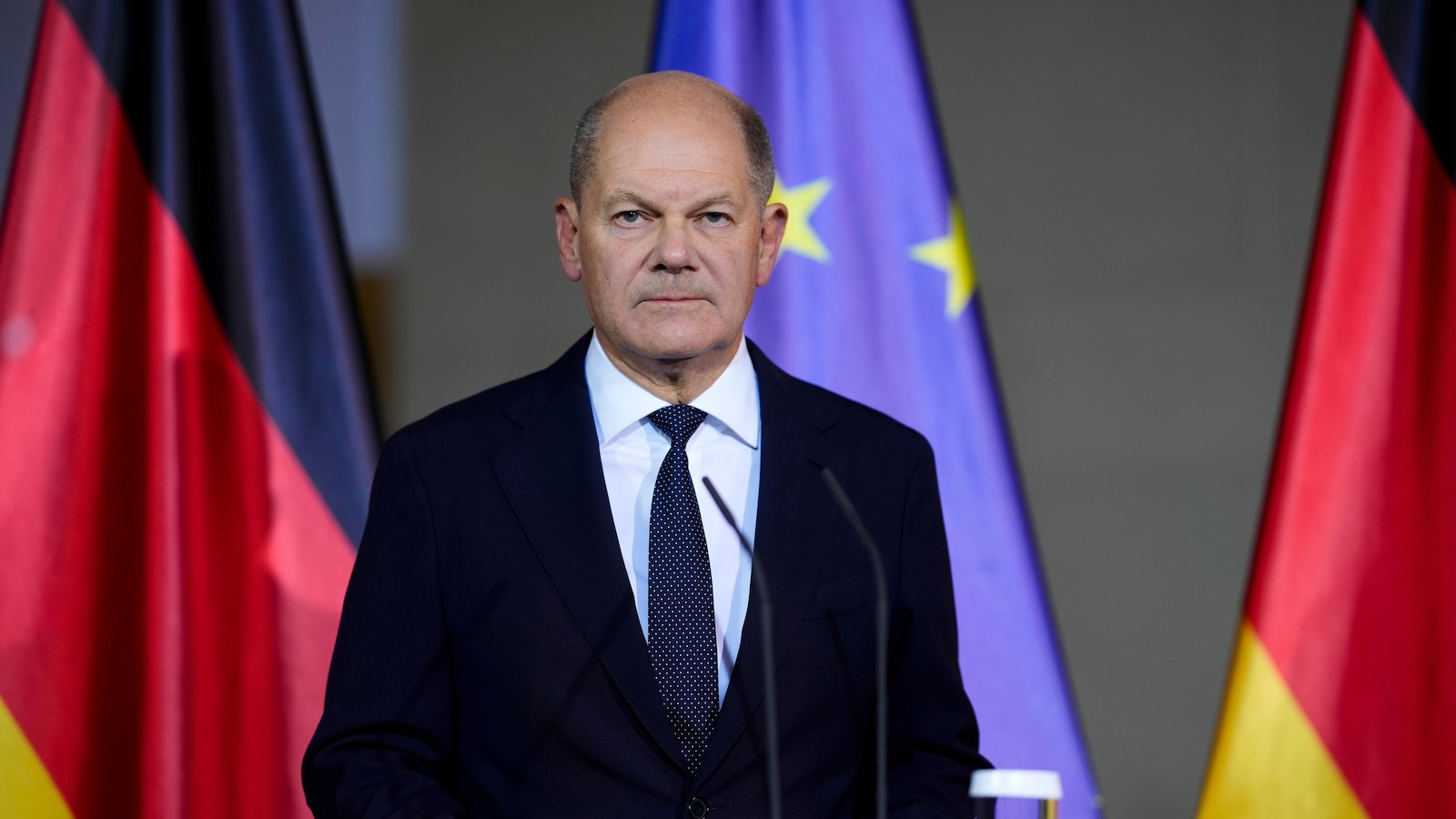BERLIN — Germany’s government coalition has collapsed in dramatic fashion after Chancellor Olaf Scholz fired Finance Minister Christian Lindner of the pro-business Free Democrats in a late-night move following a marathon of crisis meetings.
The three remaining ministers of the Free Democrats resigned in response, leading to the downfall of the government coalition. Scholz is expected to lead the country with a minority government, but the opposition is calling for an immediate no-confidence vote.
But early Thursday, Transport Minister Volker Wissing from the Free Democrats unexpectedly took back last night’s resignation and told reporters that after talking to Scholz, he had decided to stay on as minister and leave the party instead.
Lindner will receive his certificate of dismissal from President Frank-Walter Steinmeier on Thursday afternoon and, to ensure a smooth transition, a successor will likely be named right after. The posts of the research and justice ministers who resigned may also be filled Thursday, German news agency dpa reported.
Scholz announced late Wednesday that he would seek a vote of confidence on Jan. 15 that he said might lead to an early election as soon as March — which otherwise would have been be due next September.
Scholz had accused Lindner of breaching his trust and publicly calling for a fundamentally different economic policy, including what the chancellor said would be tax cuts worth billions for a few top earners while at the same time cutting pensions for all retirees.
“That is not decent,” Scholz said.
Scholz’s left-leaning Social Democrats will now effectively lead a minority government with the remaining coalition partner, the environmentalist Greens.
The chancellor announced late Wednesday that he would reach out to the leader of the biggest opposition leader in parliament, Friedrich Merz from the center-right Christian Democrats, to confer on possible ways of strengthening the economy and defense, and passing important legislation through parliament.
But Merz on Thursday vehemently rejected Scholz’s plan to wait to hold a vote of confidence until January.
“The coalition no longer has a majority in the German Bundestag, and we therefore call on the chancellor (…) to call a vote of confidence immediately, or at the latest by the beginning of next week.”
“We simply cannot afford to have a government without a majority in Germany for several months now, and then campaign for several more months, and then possibly conduct coalition negotiations for several weeks,” Merz added.
He said he was planning to meet with Scholz later Thursday to push for a quick vote of confidence.
Since Scholz’s government doesn’t have a majority in parliament any longer, he would likely lose the vote. In that scenario, Germany’s president could dissolve parliament within 21 days and an early election could then be held as soon as January.
“During these 21 days, we will have enough time to find out whether there are any issues that we may have to decide on together,” Merz said, offering his party’s cooperation with the minority government. “We are, of course, prepared to hold talks (..) we are also prepared to take responsibility for our country.”
Indeed, pushing through new legislation and plugging the billion-euro hole in the 2025 budget won’t become easier for Scholz’s Social Democrats and the Greens as their government no longer has a majority in parliament. But Scholz has said his government needed that time to pass important legislation.
Achim Wambach from the Leibniz Center for European Economic Research cast doubt that a prolonged period with a minority government would help Germany’s economy get back on track.
“Germany’s problems are too big to tolerate political gridlock,” the analyst said.
“The government set out to reconcile the transformation towards climate neutrality with economic growth and social security,” the analyst said in a statement. “It has not lived up to this claim. The economy is stagnating and investments are failing to materialize.”
“This daunting task was compounded by geo-economic tensions: wars in Europe and the Middle East as well as economically damaging interventions through tariffs and national subsidy policies,” he added. “ The election of Donald Trump has exacerbated these problems. Europe must do more for its security and will have to reckon with increased tariffs.”
The collapse of the coalition came after weeks of disputes among the coalition partners over ways to boost the country’s ailing economy.
Lindner’s pro-business Free Democrats had rejected tax increases or changes to Germany’s strict self-imposed limits on running up debt. Scholz’s Social Democrats and the Greens wanted to see major state investment and rejected the Free Democrats’ proposals to cut welfare programs.

